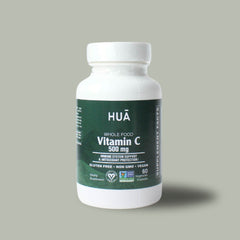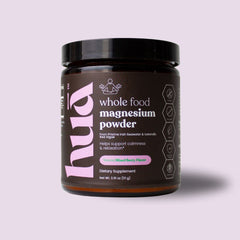Should you take multivitamins with food?
Should I Take a Multivitamin with Food or on an Empty Stomach? Unveiling the Best Practice
Multivitamins are a convenient way to fill in nutritional gaps in our diets, providing a variety of essential vitamins and minerals, when our busy lives make it hard to eat perfectly all the time or when we have certain dietary restrictions. However, the question of whether to take them with or without food often arises. Understanding how multivitamins interact with food and their optimal absorption can make a difference in their effectiveness.
The Role of Food in Vitamin Absorption
There are two types of vitamins: fat-soluble and water-soluble. Fat-soluble vitamins (like vitamins A, D, E, and K) require dietary fat from foods for proper absorption [1]. In contrast, water-soluble vitamins (such as vitamin C and the B vitamins) can be absorbed without the presence of fat and simply require water to be optimally absorbed [2].
When taken with a meal containing fats or oils, fat-soluble vitamins have better absorption rates. For example, there is substantial evidence that the best absorption of vitamin D supplements is when you take it with your largest meal of the day [3]. The presence of food can also help prevent potential stomach discomfort or nausea that might occur when taking any vitamin, water-soluble or fat-soluble, on an empty stomach, especially for those with sensitive stomachs.
Because multivitamins contain both fat-soluble and water-soluble vitamins, it is best to take them with food to achieve the best absorption. However, it’s not to say you can’t take multivitamins without food. Consistency is key when it comes to getting the benefits of vitamins so if taking multivitamins without food fits better with your schedule and you don’t experience an upset stomach doing so, you should continue to do as it is better than not taking them at all.
Conclusion
Taking vitamins on an empty stomach is generally not bad for you but can mean reduced absorption for fat-soluble vitamins and stomach upset for some vitamins, both fat- and water-soluble types of vitamins. Thus, taking multivitamins and fat-soluble vitamins with food is generally the best way to go if it is available to you. However, sometimes life gets busy and you need to rush out the door without time for breakfast on some days. So if taking it with food doesn’t suit your preferences or schedules, then taking it without food is perfectly fine too, especially if it helps you maintain consistency with taking your vitamins.
Taking multivitamins with food isn’t all there is to optimizing absorption. You have to first ensure that you have a high quality multivitamin to start with. When looking for a multivitamin, check that it contains a comprehensive array of essential vitamins and minerals. Assess the ingredient list to ensure it's free from unnecessary additives, fillers, or artificial colors and flavors. Confirm that the brand undergoes third-party testing to confirm purity, potency, and absence of contaminants.
You can be confident these requirements are met (and more!) with HUĀ’s Women’s and Men’s Whole Food Organic Multivitamins. All of our supplements undergo rigorous third-party testing, ensuring over 99% purity. And by being whole food multivitamins, they are created from real foods, providing an authentic source of vitamins and minerals as found in nature. Natural forms of nutrients help ensure high absorbability and bioavailability. Deriving our ingredients from real foods also means our supplements can retain the natural cofactors and enzymes found in foods that facilitate the body's efficient nutrient absorption, something typically absent in synthetic multivitamins [4]. Additionally, our multivitamins are Certified USDA Organic, Vegan Certified, Gluten Free and Non-GMO.
Remember, multivitamins are intended to supplement a healthy diet, not replace it. Prioritizing a nutrient-rich diet still remains the foundation for overall well-being but supplementing your diet with a high quality multivitamin can be considered an added insurance when you’re juggling a busy life.
When in doubt, always seek guidance from a healthcare professional to tailor your supplement regimen according to your specific nutritional needs and health status.
References
[1] Ravisankar, P., Reddy, A. A., Nagalakshmi, B., Koushik, O. S., Kumar, B. V., & Anvith, P. S. (2015). The comprehensive review on fat soluble vitamins. IOSR Journal of Pharmacy, 5(11), 12-28.
[2] Said, H. M. (2011). Intestinal absorption of water-soluble vitamins in health and disease. Biochemical Journal, 437(3), 357-372.
[3] Mulligan, G. B., & Licata, A. (2010). Taking vitamin D with the largest meal improves absorption and results in higher serum levels of 25‐hydroxyvitamin D. Journal of Bone and Mineral Research, 25(4), 928-930.
[4] Thiel, R. J. (2000). Natural vitamins may be superior to synthetic ones. Medical hypotheses, 55(6), 461-469.


